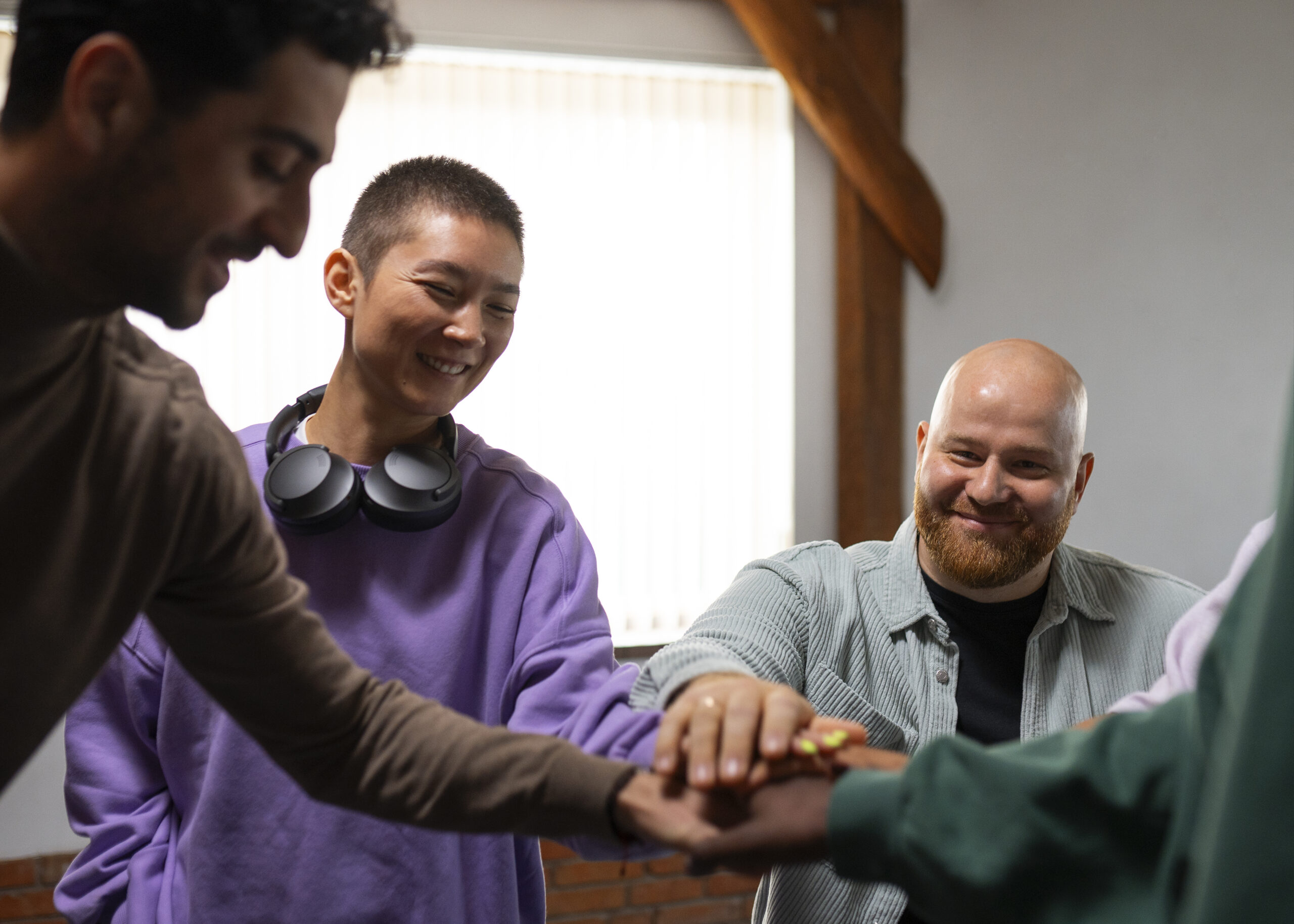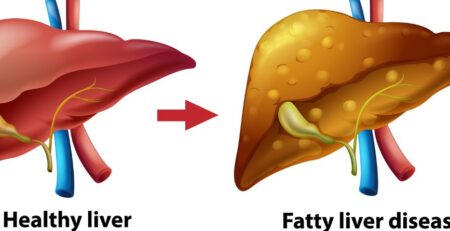Tiny Acts, Big Impact: Unveiling the Power of Small Actions
In our fast-paced world, it’s easy to overlook the significance of the seemingly trivial moments in our daily lives. Yet, it is often these small actions that hold the power to spark profound change, both within ourselves and in the world around us. Let’s dive into the essence of “small actions” and uncover the remarkable impact they can have when we choose to acknowledge and nurture them.
What are Small Actions?
Small actions are the seemingly insignificant gestures, decisions, or behaviors we undertake in our everyday lives. They can range from a simple smile exchanged with a stranger to the conscious choice to recycle or reduce our carbon footprint. While individually they may appear inconsequential, collectively they form the fabric of our interactions and contributions to society.
Acknowledging Their Impact
Acknowledging the impact of small actions is crucial for several reasons. Firstly, it allows us to recognize the value inherent in every moment and decision we make, regardless of its scale. By understanding that even the smallest of gestures can have a ripple effect, we empower ourselves to make intentional choices that align with our values and aspirations. It also fosters a sense of agency and responsibility within us. It reminds us that we possess the power to influence and affect change, no matter how modest our individual efforts may seem.
Furthermore, by acknowledging the impact of small actions, we cultivate a culture of mindfulness and gratitude. We become more attuned to the interconnectedness of our lives and the world around us, fostering empathy, compassion, and a sense of belonging. In a world where many issues can appear overwhelming, recognizing the significance of small actions offers a source of hope and motivation.
Understanding Small Actions
Examples of Small Actions:
Small actions permeate our daily lives, often going unnoticed or uncelebrated. Yet, they hold the potential to brighten someone’s day, alleviate a burden, or contribute to a larger cause.
Here are just a few examples of small actions that can make a big difference:

- Smiling at a Stranger: A simple smile can be a beacon of warmth in an otherwise mundane or stressful day. It has the power to lift spirits, foster connection, and remind us of our shared humanity.
- Holding the Door Open: This small gesture of courtesy and consideration may go unnoticed in the rush of everyday life, but it reflects a willingness to extend kindness to others and create a more inclusive and respectful environment.
These examples represent just a fraction of the myriad of small actions we encounter and engage in daily. While individually they may seem trivial, collectively they contribute to shaping the fabric of our society and influencing the world around us.
Contrast Between Small and Large Actions
Recognizing the distinction between small and large actions is essential, as they each serve distinct purposes and carry different implications.
Large actions often garner more attention and recognition due to their scale and visibility. They may involve significant investments of time, resources, or effort and have the potential to generate profound and immediate impacts.
Examples of large actions include organizing a fundraising event for a charitable cause, leading a grassroots campaign for social change, or spearheading a community development project.
In contrast, small actions are characterized by their simplicity, accessibility, and ease of implementation. While they may not command the same level of attention or resources as large actions, they are no less meaningful or impactful.
Small actions are the building blocks of larger initiatives, serving as the foundation upon which positive change is built. They are the everyday expressions of our values, intentions, and commitments to ourselves and others.
Moreover, small actions possess a unique capacity to inspire and mobilize others. By demonstrating the power of incremental change and leading by example, we can encourage others to adopt similar behaviors and contribute to collective efforts towards a shared goal.
The Ripple Effect

How Small Actions Can Create a Ripple Effect
Have you ever tossed a pebble into a calm pond and watched as ripples spread outwards, touching the surface far beyond the point of impact? This simple yet profound phenomenon aptly illustrates the concept of the ripple effect. In much the same way, small actions have the power to create waves of influence that extend far beyond their initial occurrence.
The ripple effect operates on the principle of interconnectedness, wherein every action we take sends out vibrations that reverberate through our lives and the lives of those around us. When we engage in a small act of kindness, for instance, helping a stranger or offering words of encouragement, we set off a chain reaction of positivity that can uplift spirits, strengthen bonds, and inspire further acts of kindness in others.
Moreover, small actions have the potential to catalyze larger movements and initiatives, sparking momentum and driving change on a broader scale. Consider the impact of a single individual choosing to reduce their consumption of single-use plastics. While their action may seem insignificant in isolation, when multiplied by the collective efforts of millions, it can lead to substantial results.
Illustrative Anecdotes
To further illustrate the transformative potential of small actions and the ripple effect they can generate, let’s delve into a few compelling anecdotes:
- The Butterfly Effect: Originating from chaos theory, the butterfly effect suggests that small changes in initial conditions can lead to significant differences in outcomes over time. For instance, a small act of generosity, such as donating a few dollars to a charitable cause, can snowball into a substantial contribution when multiplied by the support of others, ultimately making a meaningful impact on the lives of those in need.
- Pay It Forward: The concept of paying it forward exemplifies the ripple effect in action. When someone receives an act of kindness, they are often inspired to pay it forward by extending kindness to others in turn. This simple yet powerful practice has the potential to create a cascade of goodwill that reverberates throughout communities, fostering a culture of generosity, compassion, and reciprocity.
These anecdotes underscore the profound impact that small actions can have when amplified by the ripple effect. By recognizing the interconnectedness of our actions and embracing the power of small gestures, we can harness the transformative potential of the ripple effect to create positive change in our lives and the world around us.
Psychological Perspective
Cognitive Dissonance and Behavior Change
Cognitive dissonance, a concept introduced by psychologist Leon Festinger in the 1950s, refers to the discomfort experienced when individuals hold conflicting beliefs, attitudes, or values. When faced with cognitive dissonance, people are motivated to alleviate the discomfort by aligning their thoughts, feelings, and behaviors. Small actions play a crucial role in this process of behavior change.
Consider, for example, someone who holds a belief in the importance of environmental conservation but rarely takes action to reduce their carbon footprint. This discrepancy between belief and behavior creates cognitive dissonance, prompting the individual to seek ways to reconcile the inconsistency. By starting with small, manageable actions such as recycling, using reusable products, or conserving energy, individuals can gradually align their behaviors with their environmental values, reducing cognitive dissonance in the process.
Personal Well-Being and Happiness

The influence of small actions extends beyond their external impact on the world; they also play a significant role in shaping our internal experiences of well-being and happiness. Research in positive psychology has highlighted the importance of engaging in small, everyday activities that promote positive emotions, enhance resilience, and foster a sense of fulfillment.
Acts of kindness, gratitude, and mindfulness are just a few examples of small actions that have been shown to enhance well-being and happiness. Whether it’s expressing appreciation to a loved one, savoring a moment of tranquility in nature, or performing a random act of kindness for a stranger, these small gestures contribute to a more positive outlook on life and greater overall satisfaction.
Moreover, the cumulative impact of small actions on personal well-being should not be underestimated. Just as drops of water gradually fill a bucket, consistent engagement in small, positive behaviors can lead to significant improvements in mental and emotional health over time. By incorporating these actions into our daily routines and habits, we cultivate a reservoir of resilience and positivity that buffers against stress, adversity, and negativity.
Amplifying Small Actions
Importance of Consistency and Repetition
Consistency and repetition are the secret ingredients that transform small actions into powerful catalysts for change. While individual small actions may seem inconsequential on their own, their cumulative impact grows exponentially when practiced consistently over time.
- Building Habits: Consistency is key to forming new habits and routines. By committing to small actions consistently, whether it’s practicing gratitude or exercising regularly, individuals gradually integrate these behaviors into their daily lives, making them effortless and automatic.
- Creating Momentum: Repetition reinforces the neural pathways associated with specific behaviors, making them easier to perform and sustain over time. As individuals consistently engage in small actions, they build momentum and motivation, propelling them toward their goals and aspirations.
- Amplifying Impact: The true power of consistency lies in its ability to amplify the impact of small actions. What may initially seem like minor changes in behavior can lead to significant outcomes when practiced consistently over extended periods. Whether it’s improving personal well-being or fostering social connections, the cumulative effect of small actions is magnified through consistent practice.
- Inspiring Others: Consistency not only benefits individuals personally but also serves as a source of inspiration for others. When people witness the sustained commitment of others to small actions, they are more likely to be motivated to adopt similar behaviors themselves, creating a ripple effect of positive change within communities and beyond.
Encouraging Others to Embrace Small Actions
While individual small actions hold intrinsic value, their collective impact is exponentially greater when shared and embraced by others. Here are some strategies for encouraging others to join the movement of small actions:
- Lead by Example: Actions speak louder than words. By embodying the values and behaviors you wish to promote, you inspire others through your example. Whether it’s composting volunteering in the community, or practicing mindfulness, your consistent actions demonstrate the feasibility and benefits of embracing small changes.
- Share Stories and Experiences: Personal anecdotes and success stories are powerful tools for inspiring others to take action. Share your experiences of how small actions have made a positive difference in your life or the lives of others. Highlight the tangible benefits and rewards that come from embracing small changes, whether it’s increased happiness, a sense of purpose, or a healthier environment.
- Provide Support and Resources: Offer guidance and support to individuals who are interested in adopting small actions but may be unsure where to start. Share practical tips, resources, and tools to help them overcome barriers and integrate new habits into their daily routines. Create opportunities for collaboration and collective action, such as organizing group activities or challenges focused on specific goals or themes.
- Celebrate Progress and Milestones: Celebrate the progress and achievements of individuals who embrace small actions, no matter how modest. Acknowledge their efforts and contributions, and highlight the positive impact they have made on themselves and others. By celebrating successes, you reinforce the importance of small actions and inspire continued engagement and participation.
Overcoming Inaction
Addressing Common Barriers
Despite recognizing the importance and potential impact of small actions, many individuals find themselves paralyzed by inertia, uncertainty, or self-doubt. Addressing these common barriers is essential for overcoming inaction and empowering individuals to take meaningful steps toward positive change.
- Fear of Failure: The fear of failure often prevents individuals from taking action, as they worry about making mistakes or falling short of expectations. However, it’s essential to reframe failure as a natural part of the learning process rather than a reflection of one’s worth or abilities. Embrace failure as an opportunity for growth and resilience, and recognize that every small action taken, regardless of the outcome, brings you closer to your goals.
- Perfectionism: Perfectionism can be a significant barrier to taking small actions, as individuals may feel compelled to wait for the “perfect” time or conditions before acting. However, perfection is an elusive and unrealistic standard that can hinder progress and perpetuate procrastination. Instead, embrace the concept of “good enough” and focus on taking imperfect action, knowing that incremental progress is better than waiting for an unattainable ideal.
- Overwhelm and Indecision: The sheer magnitude of global challenges such as climate change, social inequality, and political unrest can be overwhelming, leading to feelings of helplessness and paralysis. Break through this inertia by focusing on small, actionable steps that are within your control. By narrowing your focus and identifying specific areas where you can make a difference, you can mitigate overwhelm and build momentum towards larger goals.
- Lack of Time or Resources: Many individuals cite lack of time or resources as barriers to taking action. While it’s true that our lives are often busy and resources may be limited, it’s essential to recognize that small actions need not require significant investments of time or money. Look for opportunities to integrate small actions into your existing routines and leverage your strengths and resources to maximize impact.
Strategies for Cultivating a Mindset of Action and Contribution
Cultivating a mindset of action and contribution is essential for overcoming inaction and embracing the power of small actions. Here are some strategies to help you adopt this mindset:
- Set Clear Goals and Intentions: Define specific, achievable goals that align with your values and aspirations. Break these goals into smaller, manageable steps that you can take consistently over time.
- Practice Self-Compassion: Be kind and compassionate towards yourself, especially when facing challenges or setbacks. Recognize that taking small actions, no matter how modest, is an accomplishment worthy of celebration.
- Create Accountability: Share your goals and intentions with friends, family, or community members who can provide support and accountability. Consider joining forces with others to work towards common goals and hold each other accountable for taking action.
- Celebrate Progress: Celebrate your progress and achievements along the way, no matter how small. Acknowledge the positive impact of your actions on yourself and others, and use these victories as fuel to sustain your momentum.
- Stay Flexible and Adapt: Be willing to adapt and adjust your approach as needed based on feedback and changing circumstances. Stay open to new opportunities and ideas, and be willing to course-correct if your initial plans don’t yield the desired results.
The big takeaway
From the myriad of gestures, decisions, and behaviors we undertake in our everyday lives, small actions have the power to create ripple effects that extend far beyond their initial occurrence.
Small actions matter because they embody our values, intentions, and commitments to ourselves and others. They serve as the building blocks of positive change, fostering connections, promoting empathy, and inspiring collective action. While individually they may seem modest or inconsequential, their cumulative impact is undeniable, shaping the social fabric of communities and contributing to the well-being of individuals and the planet.
This article is authored by Clive Coutinho
(A version of this piece first appeared in ItsGoa magazine. )
About Clive
As an Integrative, Life, and Personal Coach, Clive conducts himself like a skilled navigator, guiding individuals through the choppy waters of personal growth and self-discovery. Possessing an innate ability to listen with empathy, and understand deeply, he blends wisdom and encouragement to empower others to navigate life’s challenges, foster resilience, and self-awareness, offering insights and illuminating paths to success and fulfillment.
As a beacon of inspiration and accountability, rather than just showing the way, he strongly believes in walking alongside his clients, championing every step of their journey toward their triumph and success.
Need personalized guidance to become the most authentic you? Book your one-on-one consult with Clive by calling 1800 102 0253 write to us at consults@lukecoutinho.com.
|
From a pimple to cancer, our You Care Wellness Program helps you find a way Talk to our integrative team of experts today 18001020253 |










Leave a Reply